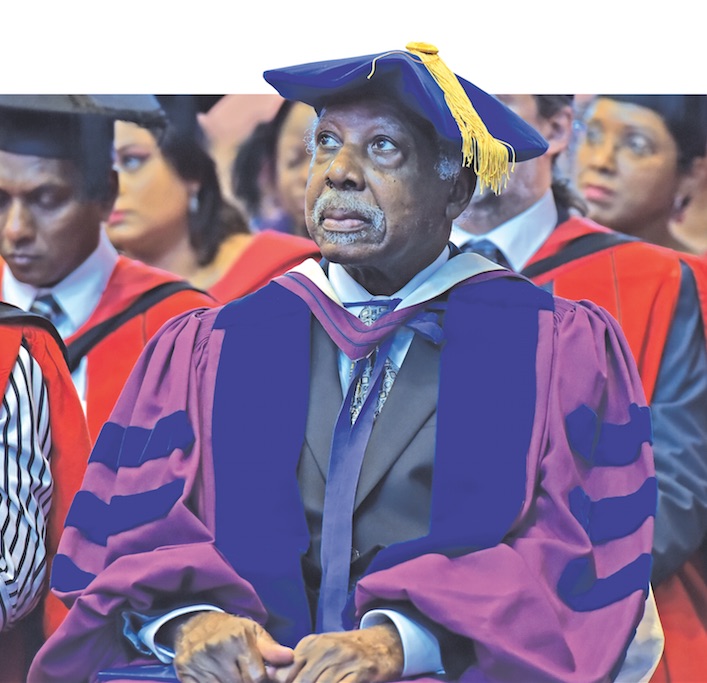

When Professor Winston A Richards left Trinidad in 1955 to study at Marquette University in Milwaukee, Wisconsin, he did not know his love of maths and statistics would allow him to change the world. However, even with his international success the professor hasn’t forgotten his roots. Every year he returns to UWI St Augustine to be part of the graduation ceremonies and present the academic prize bearing his name.
Having studied and worked at several universities around the world over the 60 or so years that followed, Professor Richards is always drawn back to The UWI and the island he came from. “I come back at least once a year, sometimes twice. I just enjoy coming back to Trinidad...My favourite thing about coming back is to see old friends and assist the younger generation of statisticians,” says the Professor. On his 75th birthday, he was celebrated at The UWI and decided to set up the Winston A. Richards Prize in Statistics at the Faculty of Science and Technology (FST) Annual Prizes and Awards Ceremony. Ariel Stewart is this year’s winner.

Professor Richards’s work in statistics is rooted in the practical as much as in a love of the numbers themselves. According to him, statistics is more important to the fabric of our society than we realise.
“A knowledge and understanding of numbers, particularly related to collecting statistical data, is essential for a healthy democracy,” he says. As he points out, the leaders of a country must have a way to tell what the people want, what affects them most, and ultimately how to change their lives for the better if they are to uphold their duties to the country they serve.”
In Professor Richards’s seminar on October 24, entitled ‘My Life as a Statistician’, he wove together the personal, academic and activist aspects of his life, including details of some of his ground-breaking work. His study of the Three Mile Island Nuclear Generating Station in Dauphin County Pennsylvania, following a partial meltdown of a reactor at their power-generating plant in March 1979, revealed a significant increase (50 per cent) in infant mortality. This information paved the way for a massive movement against the plant for the increase in cancer and other medical issues in persons living in close proximity to the reactors. This was a turning point in the US nuclear power industry, and much of that information would never have come to light if not for statistics.
For the upcoming generation of scholars, academics and activists, Professor Richards had some timely words of wisdom: "Our country is a young democracy and a love of statistics is essential if we are going to keep the country democratic."